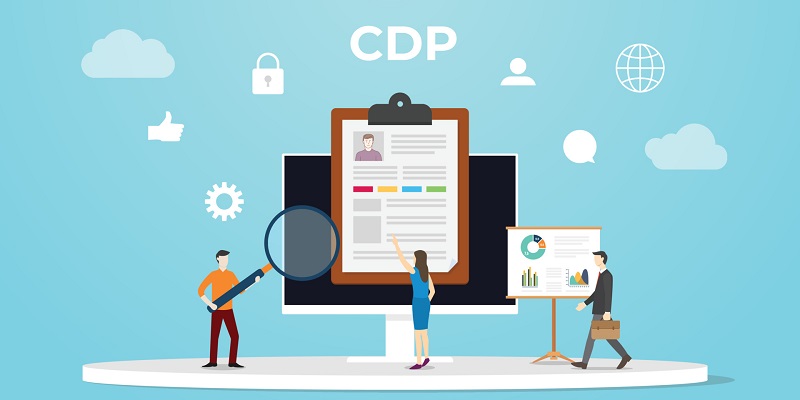In today’s rapidly evolving digital landscape, businesses are increasingly recognizing the importance of effectively managing customer data to drive personalized marketing experiences. Customer Data Platforms (CDPs) have emerged as powerful solutions, providing the capabilities to centralize, analyze, and activate customer data across multiple channels. However, successful implementation of CDPs requires careful consideration and planning to navigate the challenges within the fragmented marketing environment.
Dominance of global, networked agency or consultancy system integrator models
Large businesses investing $100,000+ in deploying a CDP solution often turn to global, networked agency or consultancy system integrator models. These models dominate the services landscape, leveraging their expertise to implement and optimize CDPs. Engaging with such partners ensures businesses can efficiently utilize CDP solutions and maximize their value.
Lack of readiness for multi-channel marketing experiences
While a CDP enables businesses to deliver seamless multi-channel marketing experiences, many organizations are ill-equipped to handle such campaigns. The marketing, data, and technology functions in larger organizations are often siloed, leading to fragmented and distracted frameworks. To fully leverage CDP capabilities, businesses must bridge these gaps and foster collaborative cross-functional environments.
Fragmented and distracted frameworks
The separation of marketing, data, and technology functions in larger organizations poses challenges in implementing CDPs. Disconnected teams and disjointed strategies hinder the true potential of integrated, data-driven marketing. To overcome this, organizations need to reevaluate their operational models, align goals, and foster cooperation to effectively utilize CDPs.
Importance of first-party data strategy
Supermarkets, airlines, telecom companies, banks, and major media publishers have long understood the significance of first-party data in driving personalized marketing efforts. These industries have invested in building robust data strategies that fuel customer insights and facilitate targeted campaigns. However, other industries have been slower to invest in data-driven programs, limiting their ability to fully incorporate CDPs.
Lack of investment in data-driven programs
Despite the potential benefits of CDPs, many industries have yet to establish the necessary infrastructure to achieve scale and quality in their data-driven initiatives. These businesses must recognize the importance of investing in data management systems and strategies to unlock the true potential of CDPs.
Lack of trust in second-party data partnerships
CIOs often perceive second-party data partnerships as high-risk endeavors due to concerns about data breaches. Protecting customer data is paramount, and organizations must ensure robust security measures are in place when sharing data with trusted partners. Building trust in these partnerships is crucial for successful CDP implementation.
Importance of clarifying objectives and understanding internal requirements
Before engaging an agency or software provider for CDP implementation, businesses must clearly define their objectives and identify the internal resources and capabilities required. Developing a comprehensive understanding of the organization’s specific needs enables efficient vendor selection and a successful CDP implementation journey.
Designing an operational model and RACI framework
To streamline CDP implementation, organizations should design an operational model that outlines roles, responsibilities, and process flows. Establishing a RACI (Responsible, Accountable, Consulted, Informed) framework ensures clear ownership and accountability across various teams and stakeholders. This connected village of services allows businesses to optimize CDP implementation and management.
Potential risks and rewards of CDP implementation
CDPs offer tremendous potential for businesses but also carry certain risks. Adequate planning and implementation is crucial to avoid the potential of CDPs becoming a sunk cost. Careful consideration of goals, alignment of marketing, data, and technology functions, and continuous training of skilled professionals are key to capitalizing on the rewards of CDPs.
As businesses strive to deliver personalized, seamless customer experiences, the importance of CDPs cannot be overstated. However, successful CDP implementation requires overcoming organizational challenges, investing in data-driven programs, building trust in data partnerships, and aligning teams across marketing, data, and technology functions. By embracing these considerations, businesses can navigate the fragmented marketing landscape and unlock the true potential of CDPs.

